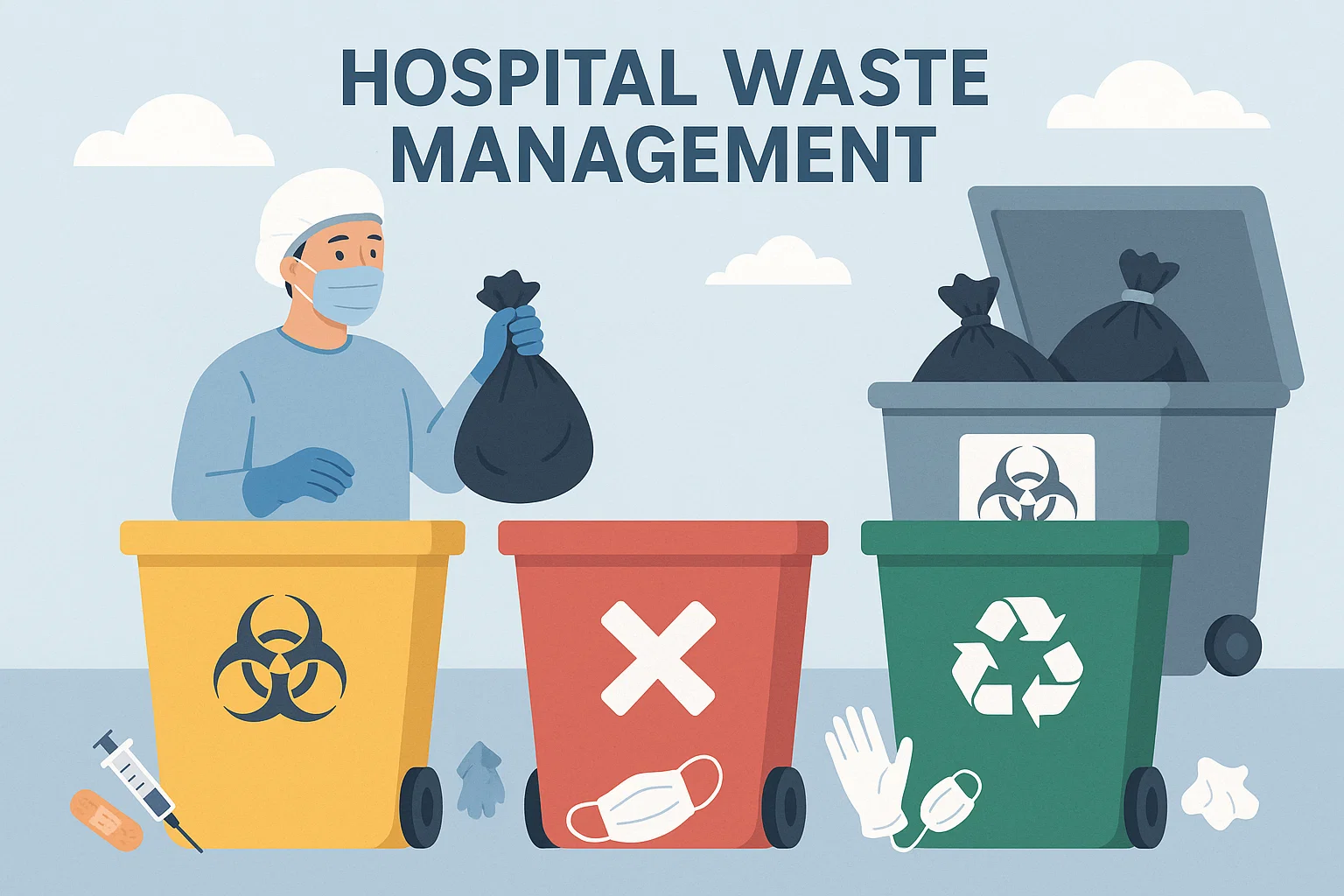Tanzania Incinerator Project Tenders and Hospital Waste Management Solutions with HICLOVER
In East Africa, and particularly in Tanzania, safe disposal of biomedical waste remains a priority for both government agencies and international donors. Recent Tanzania incinerator project tenders reflect growing demand for modern, containerized solutions that combine high-temperature combustion with modular plant flexibility. Hospitals, district clinics, and donor-supported health facilities require robust waste treatment technology to reduce risks from sharps, infectious materials, and pharmaceutical residues. HICLOVER has emerged as a trusted choice for these needs, providing containerized and mobile systems specifically tailored to the challenges of African healthcare waste management.
Hospital Waste Management in Tanzania
Tanzania’s healthcare sector generates a diverse stream of waste, from used syringes and sharps containers to pathological and pharmaceutical residues. Traditional open-pit burning or poorly designed local incinerators are no longer acceptable under Tanzania’s National Environmental Management Council (NEMC) guidelines. Instead, hospital waste management in Tanzania is shifting toward high-efficiency, dual-chamber incinerators that can operate at 850–1200 °C to achieve complete sterilization of pathogens.
Hospitals in Dar es Salaam, Arusha, and Mwanza increasingly seek 100–200 kg/hr incinerators that are both fuel efficient and compliant with WHO guidelines. In rural districts, smaller clinics and health centers are turning to mobile containerized incinerators, which can be deployed quickly and managed on-site without extensive infrastructure. These trends have created strong demand for reliable suppliers able to deliver turnkey systems, including training, spare parts, and emissions control options.
Modular Incineration Plant Design in East Africa
Beyond individual hospital units, there is a growing focus on modular incineration plant design in East Africa. Donor-funded projects, such as those from the UNDP or World Bank, often require scalable waste treatment facilities that can serve multiple clinics or regional health networks. Modular design allows capacity to expand over time: a base incinerator can start at 150 kg/hr, with additional modules added as waste volumes grow.
HICLOVER’s containerized incinerators fit this requirement perfectly. Each unit is fully enclosed in an ISO container, providing weatherproofing and mobility. The containerized format eliminates the need for civil construction, allowing the system to be delivered, offloaded, and operational within days. For East Africa, where logistics can be challenging and budgets must stretch further, modular and containerized designs reduce costs and improve sustainability.
HICLOVER TS150 PLC – A Suitable Model for Tanzania
A prime example of HICLOVER technology is the TS150 PLC model, rated at approximately 150 kg per hour burn capacity. This incinerator is designed for hospital and regional healthcare waste streams, offering:
-
Dual combustion chambers: Primary chamber volume of 1.5 m³ and a secondary chamber for flue gas treatment with a 2-second retention time.
-
PLC automatic control: Automated start, stop, and temperature regulation with manual override if required.
-
High-temperature refractory lining: Built with high alumina refractory brick (65% Al₂O₃) for durability under continuous high-heat conditions.
-
Intelligent safety features: Automatic shutdown and restart linked to feeding door operation, as well as alarms for temperature deviations.
-
Optional wet scrubber system: For facilities requiring compliance with stricter emissions standards, wet scrubbers and bag filters can be added.
-
Fuel flexibility: Operates on diesel as standard, with optional dual-fuel configuration (diesel and natural gas).
The TS150 PLC’s combination of reliability, mobility, and efficiency makes it particularly well-suited for Tanzania’s hospital waste management challenges.
Applications in Petroleum Camps and Multi-Sector Projects
While healthcare is the main driver, HICLOVER Containerized Incinerators are also widely used in petroleum exploration camps and mining projects across Africa. In Tanzania, petroleum and mining operations generate mixed solid waste that requires safe on-site treatment. The same containerized, modular incineration systems serve both medical and industrial sectors, providing a unified solution for organizations operating in remote regions.
This multi-sector adaptability means that tenders in Tanzania may specify incinerators not only for hospitals but also for refugee camps, NGOs, and energy sector camps. By offering a range of capacities from 30 kg/hr mobile units up to 500 kg/hr containerized plants, HICLOVER can match diverse project requirements.
Conclusion
The landscape of waste treatment in Tanzania is changing. With stricter regulations and increasing demand for safe, reliable solutions, Tanzania incinerator project tenders are moving toward modern, modular, and containerized plant designs. Hospital waste management in Tanzania now requires equipment that is fuel efficient, emissions-compliant, and ready for deployment in both urban hospitals and rural clinics.
HICLOVER has established itself as a leading supplier in this market, with containerized models like the TS150 PLC delivering high performance, flexibility, and compliance. From healthcare facilities to petroleum camps, HICLOVER provides East Africa with scalable, durable, and mobile incineration solutions.
For more information on HICLOVER’s incinerators, visit medical-waste-incinerator.net or oil-fired-incinerator.com.
Website: www.hiclover.com
Email: sales@hiclover.com
Mobile (WhatsApp): +86-13813931455

